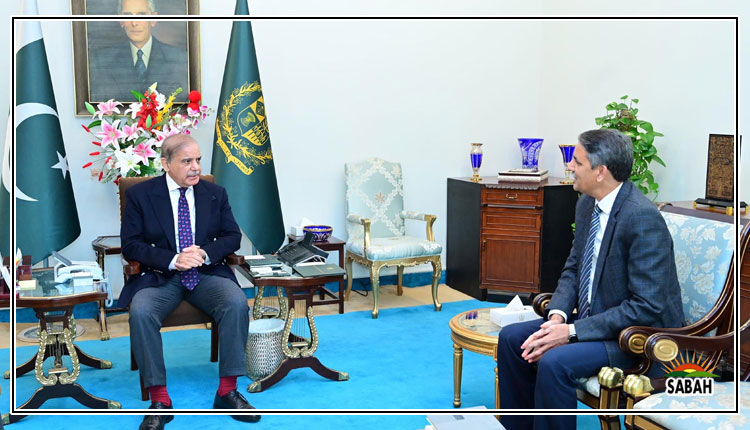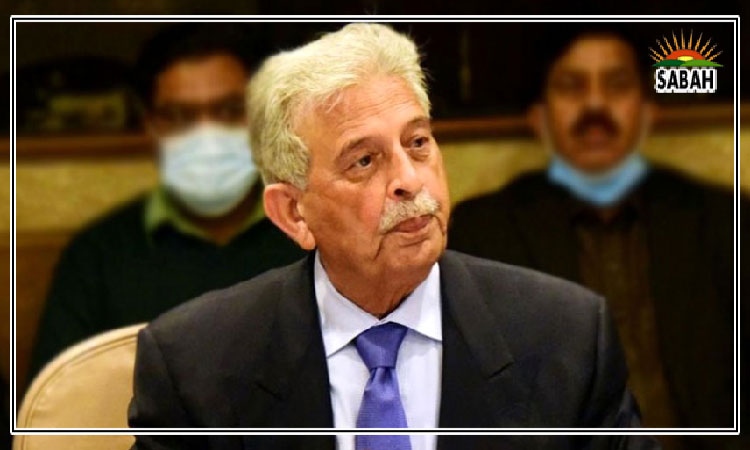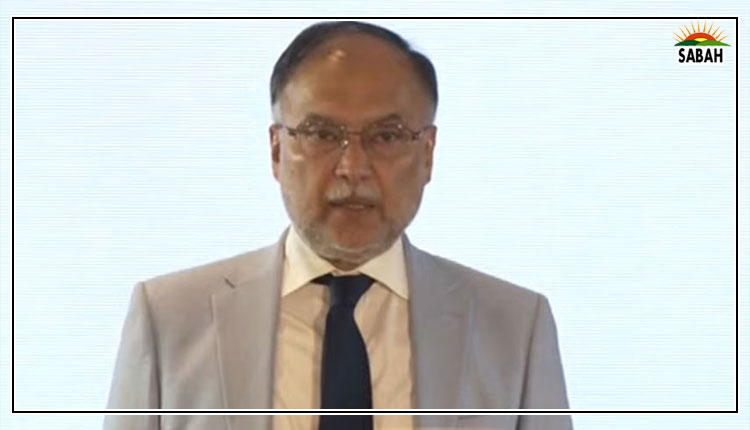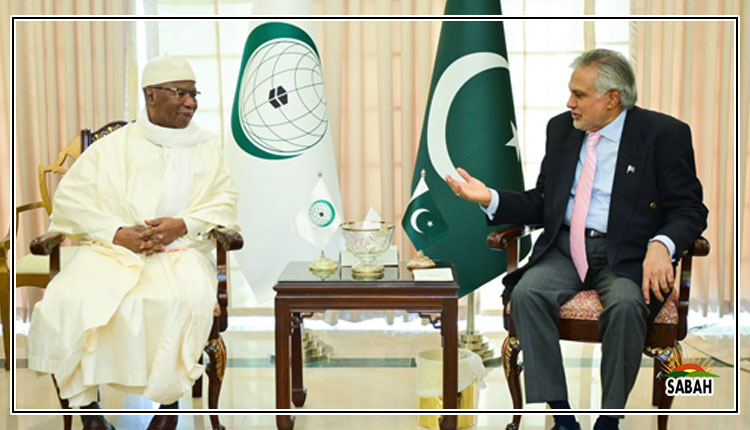Pakistan’s top talent is leaving the country in record numbers
ISLAMABAD, Dec 10 (SABAH): Asad Ejaz Butt is one of Pakistan’s best and brightest persons. After completing graduate studies in Canada, the economist returned home with a drive to contribute to his home country and its development.
Yet prestigious jobs working under two finance ministers weren’t enough to pay the bills. Over the past few years, as Pakistan’s inflation outranked any other nation in Asia, Butt couldn’t afford basic necessities, including rent. So he left his highly coveted government job and moved back to North America to buy time and complete another advanced degree.
“Passion to do something for the country was subdued by this economic responsibility and by salaries constantly being beaten by growing inflation,” Butt said from Massachusetts. “That was, for me, the tipping point.”
His story tracks across Pakistan, where a severe brain drain is hollowing out one of the world’s most populous nations during its most tumultuous period in decades. Economic precariousness is pushing out accomplished citizens across industries, starving banks, hospitals and multinationals of talent and resources. Prices for items like cars and air conditioners are now out of reach for most Pakistanis, with the cost of milk in Karachi surpassing what it would be in Paris.
In 2023, Pakistan recorded the highest outflow in several years, according to recent data from the United Nations, with the exodus most pronounced among the wealthy and educated. One million skilled workers — doctors, engineers, accountants and managers, among others — left Pakistan over the past three years alone, according to a government tally. That makes Pakistan one of the top 10 countries for emigration.
The figures are bad news for Pakistan, which needs its most talented to pull the nation back from the abyss. Over the past couple of years, mismanagement and political turbulence have battered the economy. Consumer prices doubled over the last few years. And lack of dollar reserves to settle debt payments prompted the International Monetary Fund to step in recently with a $7 billion bailout.
Though migration from Pakistan for better jobs isn’t a new phenomenon, business leaders say confidence in the country and its politicians has never been lower. Veqar Islam, the chief executive of technology company JBS in Karachi, said there’s more desperation today than at any point in the last 40 years. A recent survey found that nearly 40% of Pakistanis want to move out, and demand for US visas is at its highest ever.
“There’s a difference between people wanting to leave for better opportunity and people desperate to leave because there’s nothing left,” Islam said.
Companies are finding it hard to retain talent in key sectors like tech and finance. TPL Corp., which operates in real estate, insurance and venture capital, offers travel perks for regional roles and pays a portion of salaries for top talent in US dollars, according to its chief executive officer, Ali Jameel. And last year, two major banks saw a record number of employees move to another office outside Pakistan, according to people familiar with the matter, who didn’t want to be identified because the information isn’t public.
With the current economic situation in Pakistan, companies are finding it hard to retain talent. To adjust to Pakistan’s inflation, JBS has overspent its annual operating budget to stay competitive, retain employees and cover some rising costs. Islam said companies can’t keep doing that much longer. “Can organizations in an economic downturn give this kind of an increment? The answer is no,” he said.
Pakistan’s financial sector has been hit especially hard. Every top brokerage house has seen employees resign and leave the country for good. Companies looking to hire replacements are not finding the right talent for months. Though Pakistan’s stock market has been the world’s top performer over the past year — largely because the country secured IMF loans to avoid a default — few bankers and traders want to stay.
Mohammed Hunain, a certified financial analyst, moved to Saudi Arabia despite drawing a salary that roughly puts him in the top 5% of earners in Pakistan. He worries about the nation’s youth, who make on average each month 50,000 to 200,000 Pakistani rupees ($180 to $720). That salary makes it virtually impossible to leave — but also to survive: Over the past five years, consumer prices in Pakistan have risen three to four times faster than regional powers India and Bangladesh. “It’s very alarming and difficult to make ends meet,” Hunain said.
Prices for 51 essential items in Pakistan’s inflation basket have almost doubled on average since 2022.
As emigration numbers surge — Pakistan tops the list of family visa applicants to the UK, for instance — some argue that more remittances might help the economy by increasing dollar inflows. Pakistan is a cash-strapped country and doesn’t generate enough foreign exchange to pay for imports. Foreign workers send some $30 billion back to Pakistan each year.
Yet the authorities recognize the delicacy of the situation — and that no great nation is built on a model of exporting its top talent. As Pakistan’s economic downturn worsened, the government didn’t initially increase taxes on high earners, largely to prevent them from leaving the country.
That’s changing. To meet the terms of the IMF program, which was approved in September, officials recently increased the total tax revenue target by 40%. Exporters who were protected for decades by the government because they earned dollars were also brought into the existing tax regime — bumping their tax rate from 1% to 29%.
In private cabinet meetings, Pakistani officials weighed the risks of raising taxes on the wealthy. One camp worried about alienating top earners. The other argued that securing the IMF deal, even if that meant temporary pain, was crucial for stabilizing Pakistan’s economy.
Ali Pervaiz Malik, the state minister for finance and revenue, said talent leaving “is something that we must be cognizant of.” But with inflation lately easing, he said now is the time to “bring hope back to the people.”
It’s unclear whether the strategy will pay off. The IMF says Pakistan needs to increase revenue, but the math is brutal for ordinary citizens: Prices for 51 essential items in Pakistan’s inflation basket have almost doubled on average since 2022, according to government data compiled by Bloomberg.
Butt, the economist in Massachusetts, doesn’t see much changing in the foreseeable future. Though he misses Pakistan, and has always wanted to apply his skills there, the economy is too volatile to move back home anytime soon.
“I have to be more practical, more reasonable with my decision-making, even though I still have those emotions for my country,” he said.












